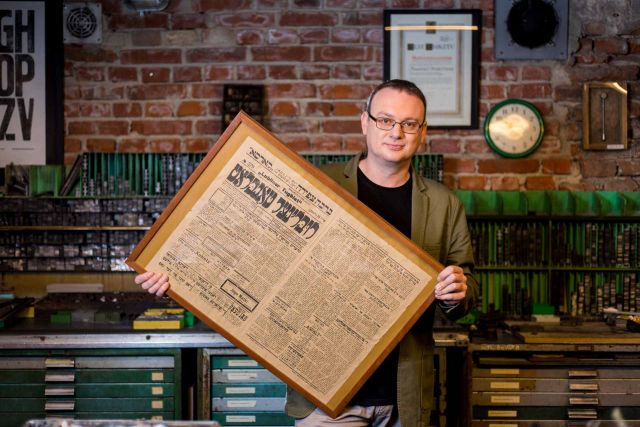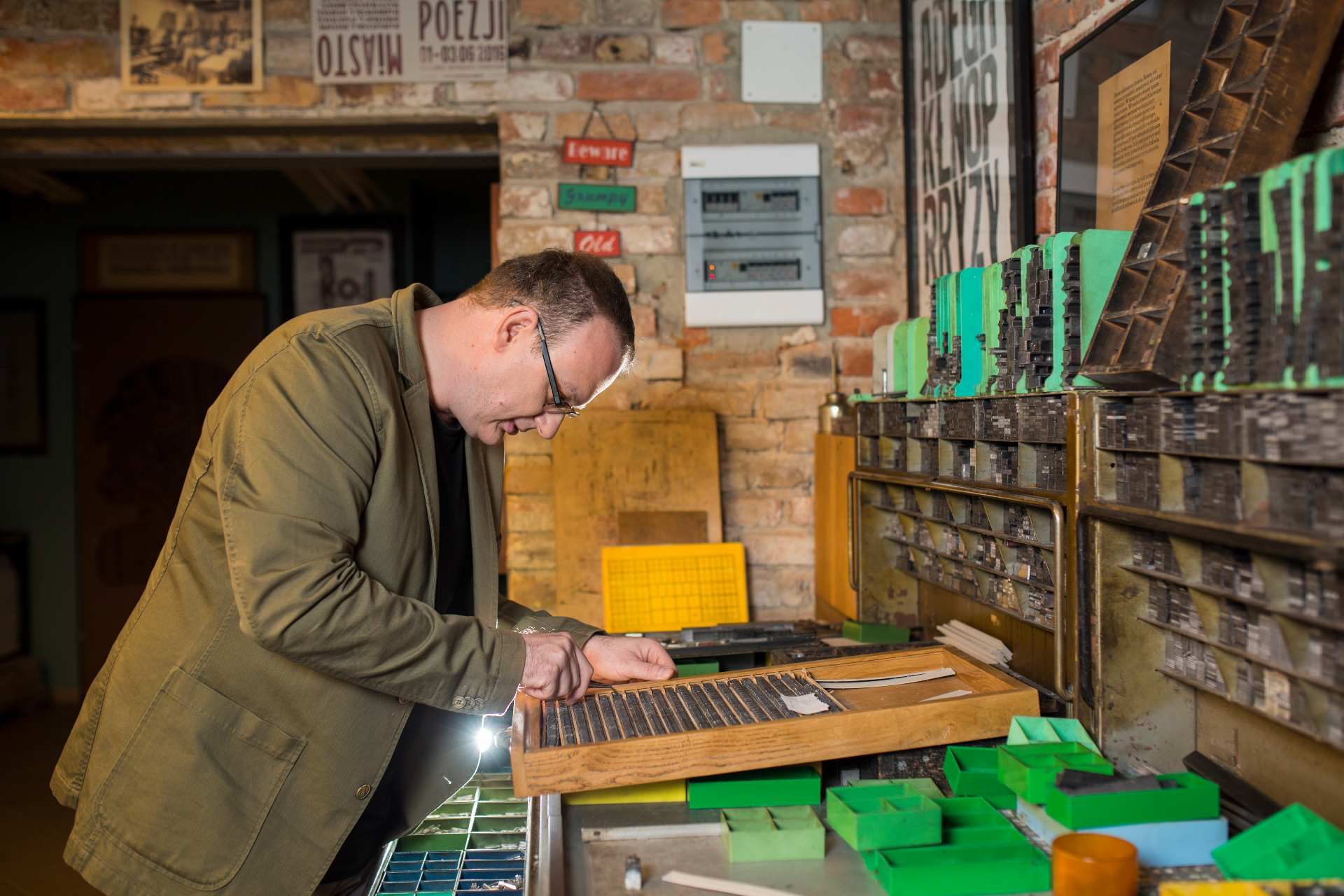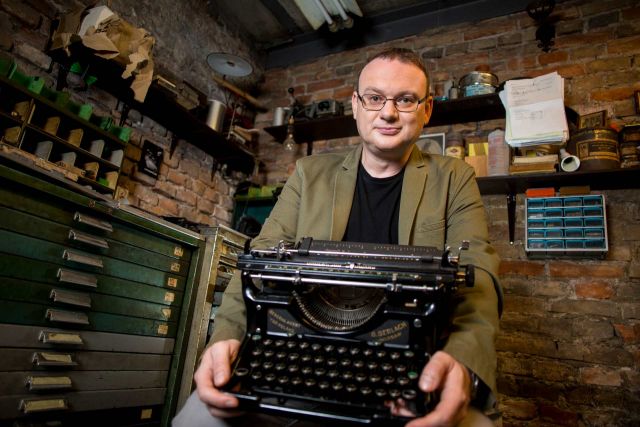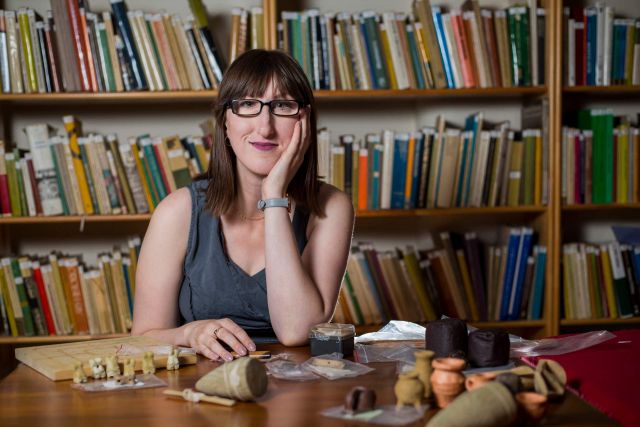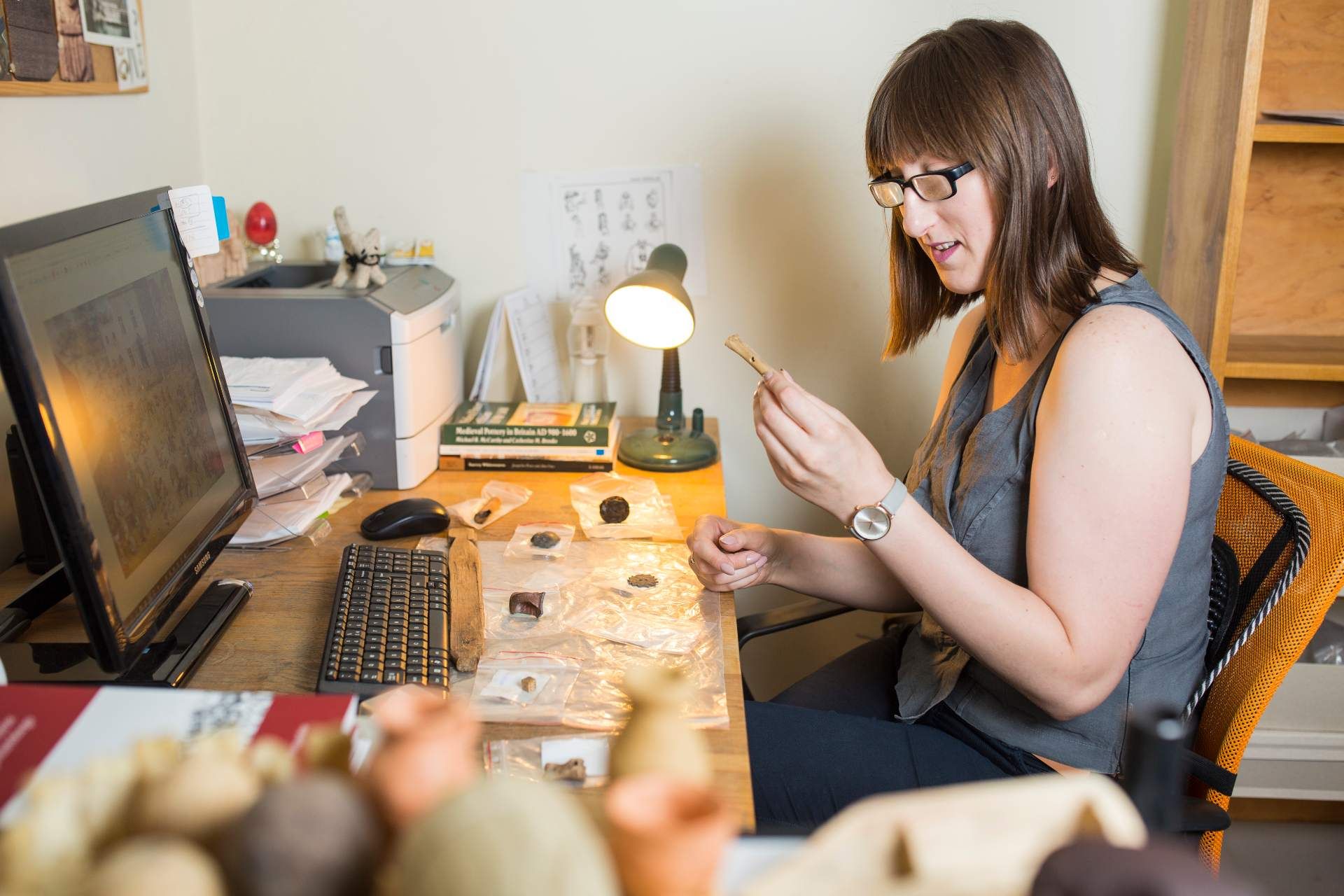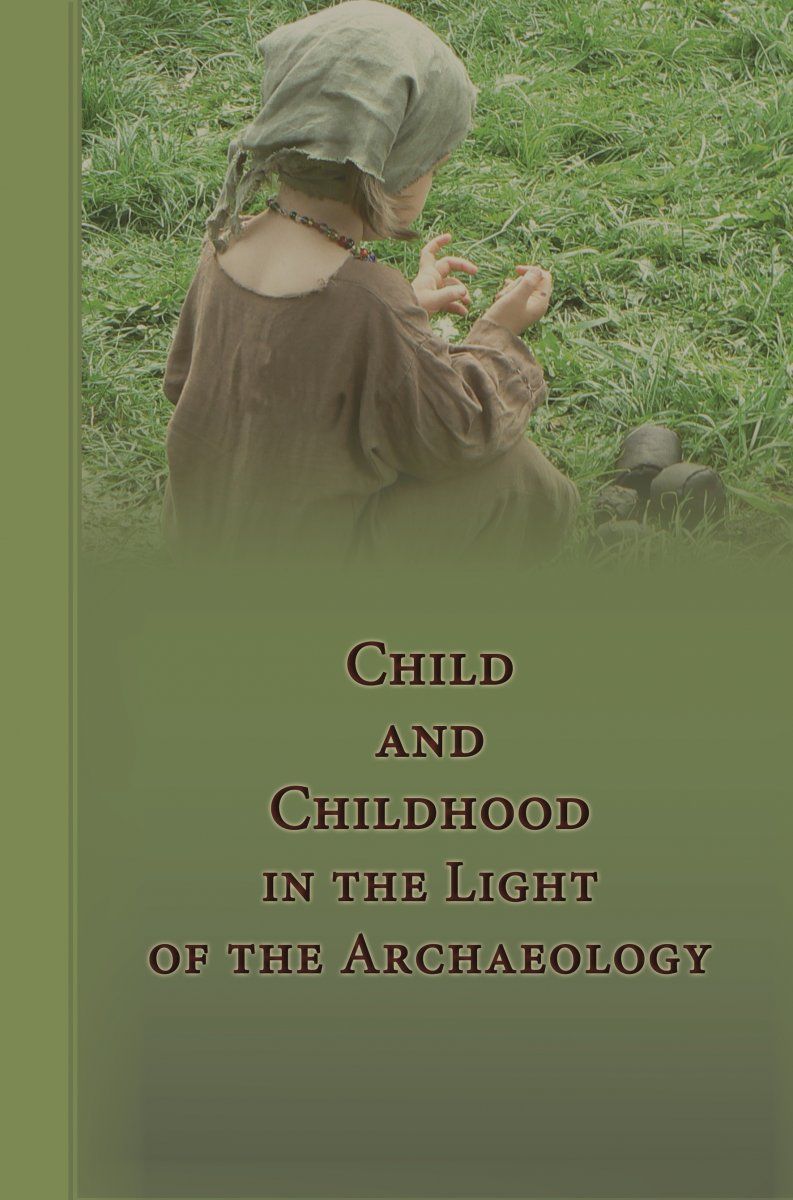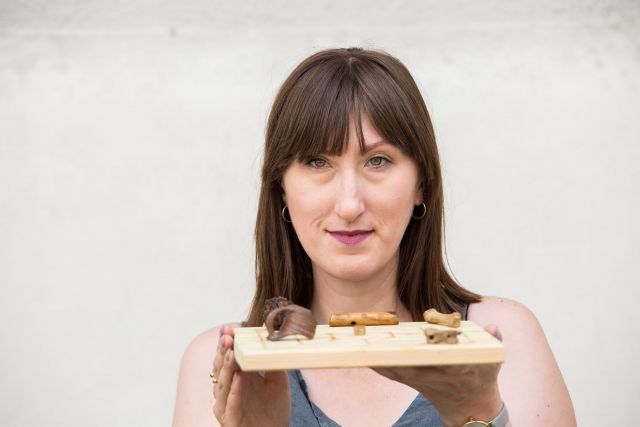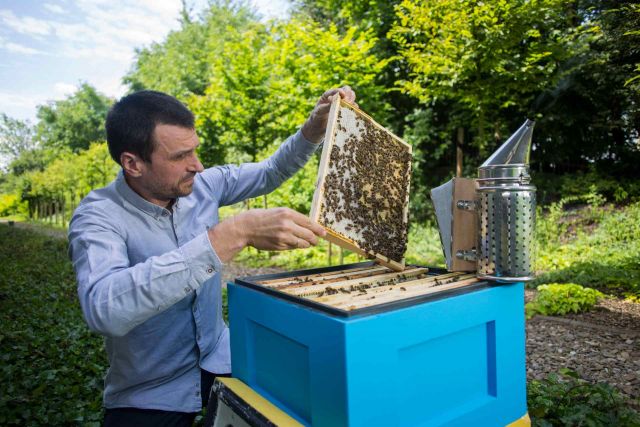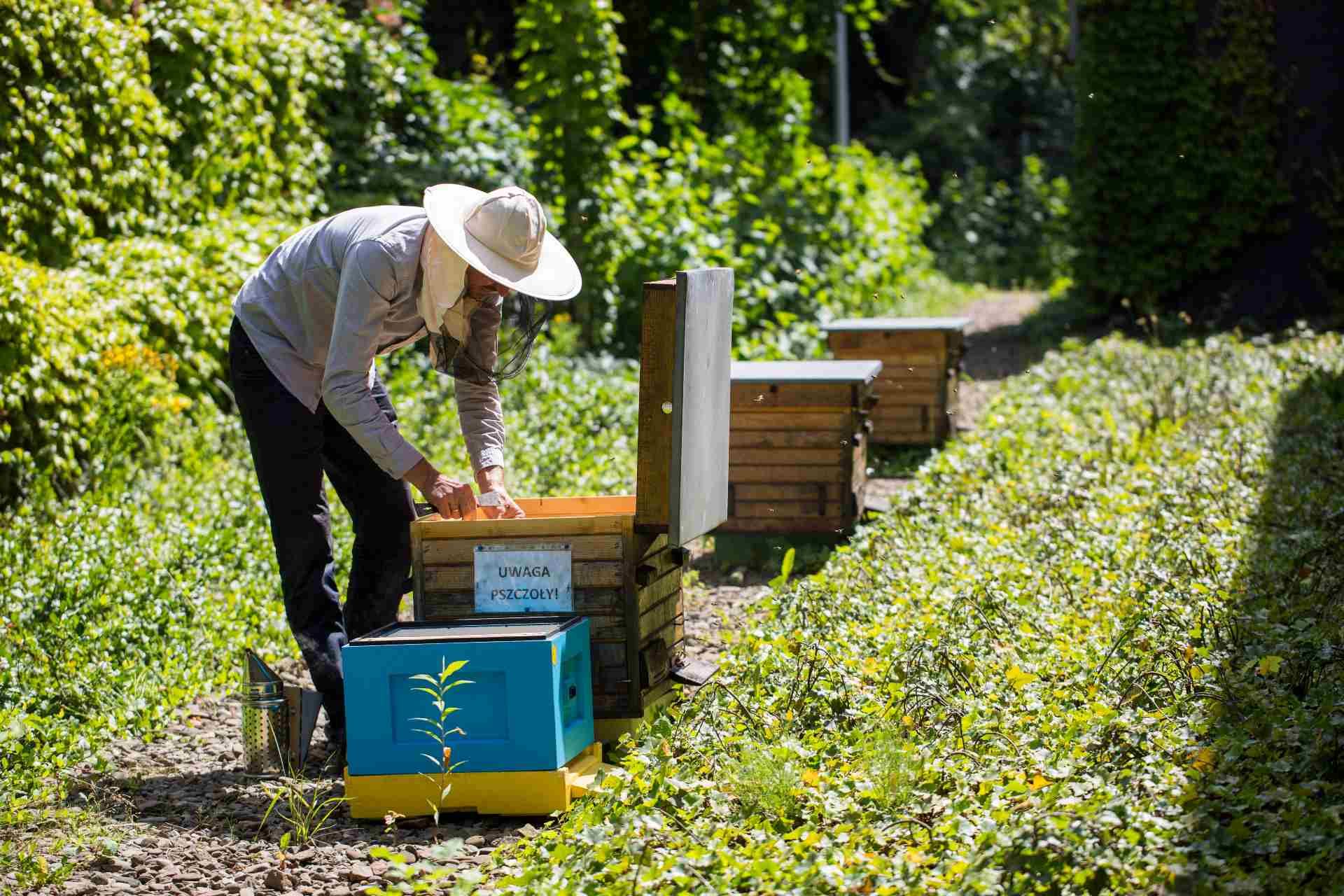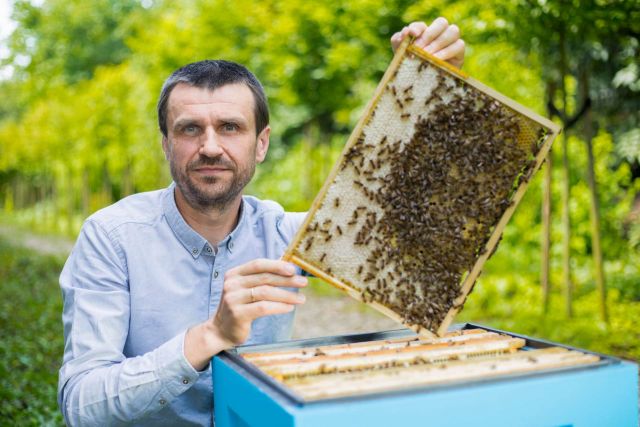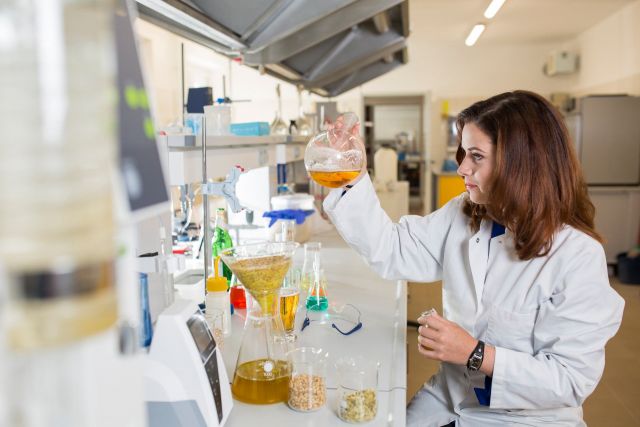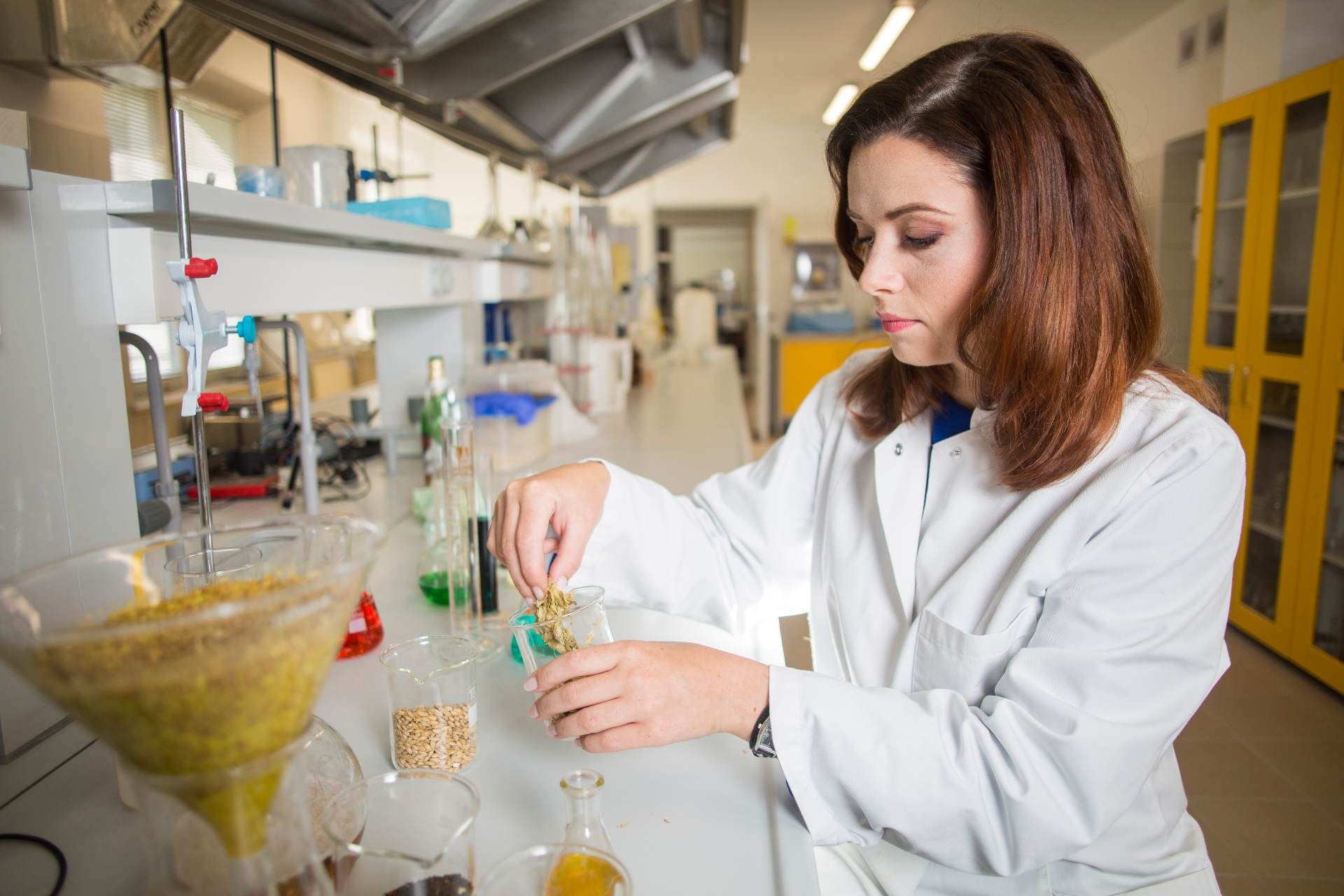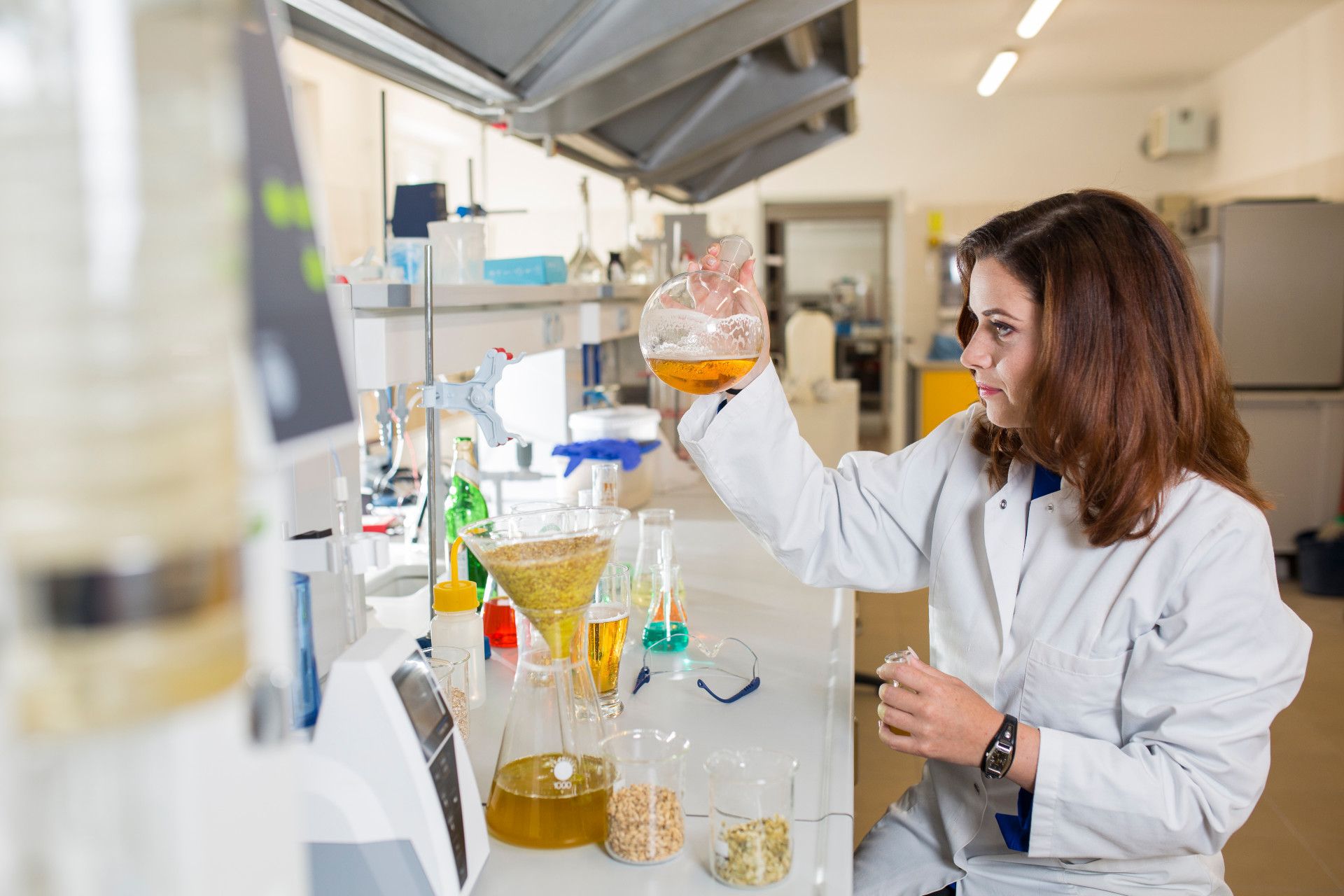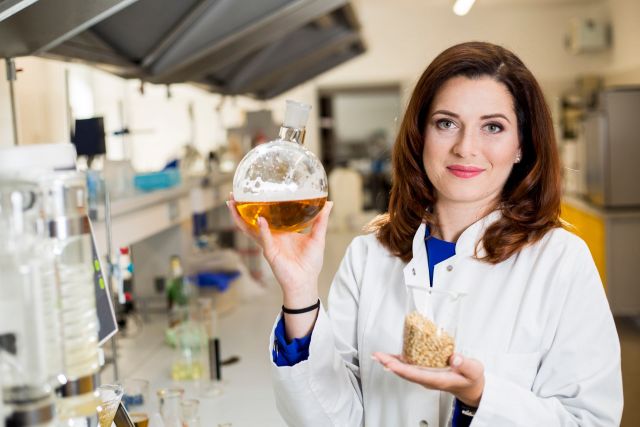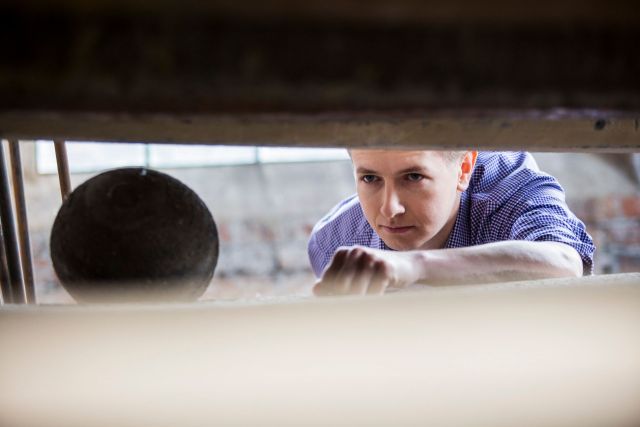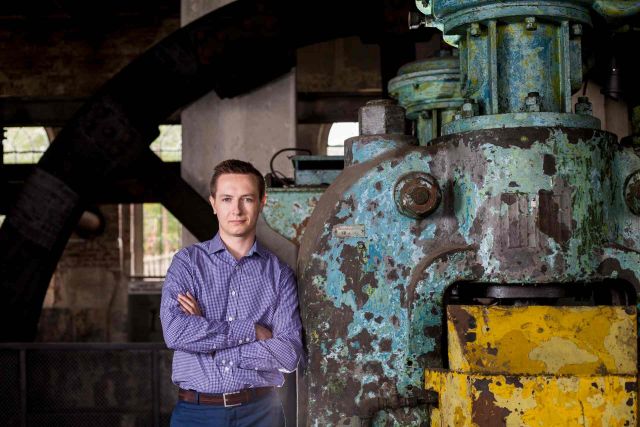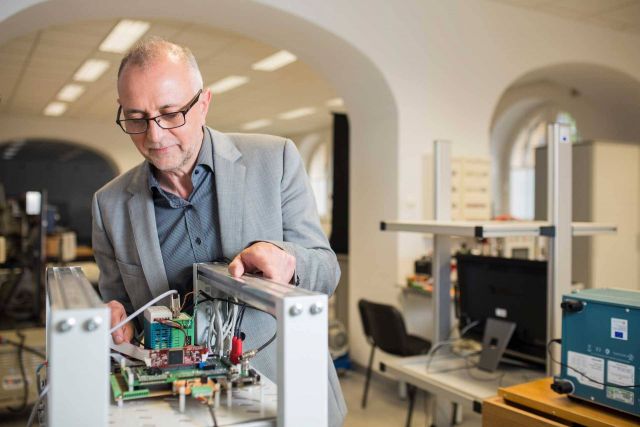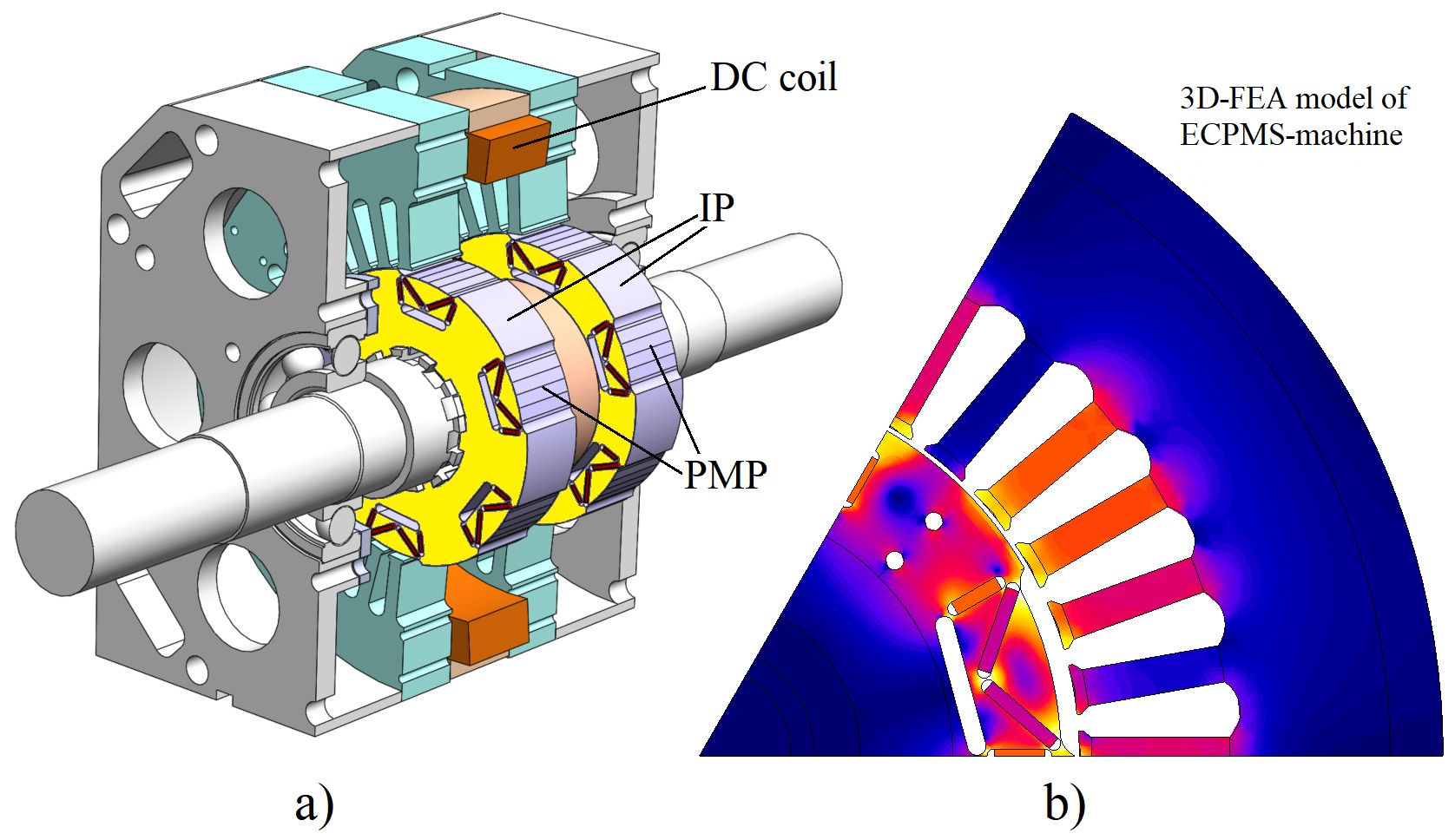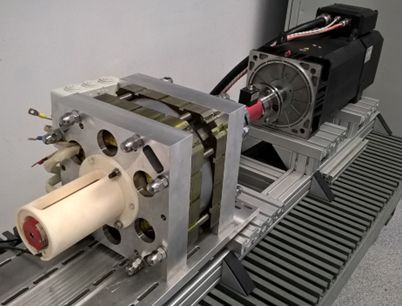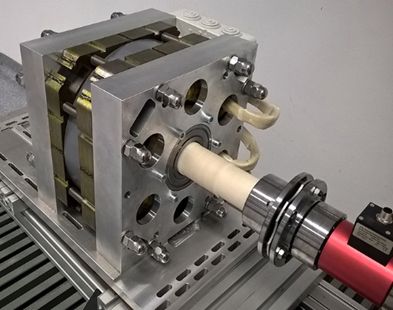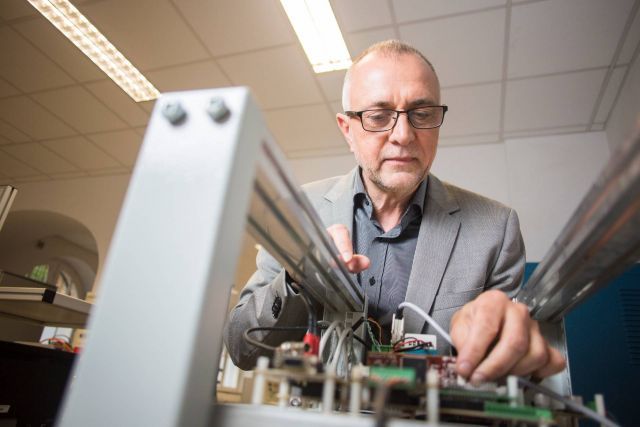Slags left over from metallurgical processes may seem to hold little appeal as a research topic: they do not contain any precious elements such as gold, platinum or REEs; usually have a cryptocrystalline structure; and cannot help us reconstruct the history of the Earth. On close inspection, however, they can be shown to provide an inexhaustible source of research material that encompasses a number of important aspects. On account of their unique chemical and petrographic composition, as well as their crystallisation conditions, slags constitute a large-scale geochemical and petrographic experiment; they contain extremely rare minerals; their weathering affects the surrounding environment, including soil, water, and organic matter; and they can serve as a basis for reconstructing the history of the smelting process.
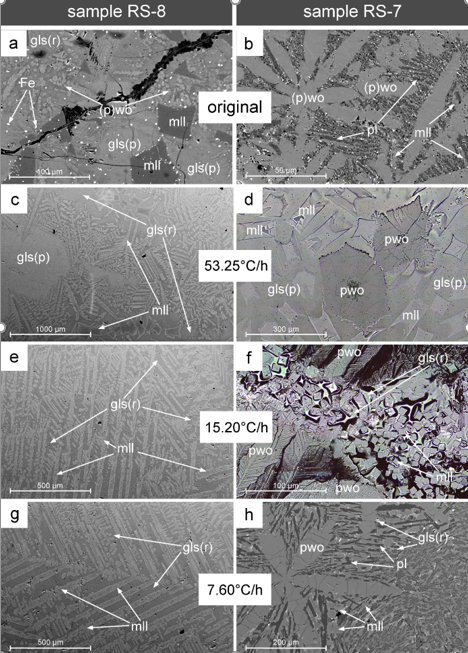 Comparing the phase composition of original metallurgical slags and their synthetic equivalents after high-temperature experiments with a controlled cooling time.
This is where the issue of crystallisation temperature comes into play. Temperature is vital to the extent that one cannot exhaustively describe slags without its precise measurement. Temperature affects the physical parameters of the material, its phase composition, chemical content and the speciation of elements between individual phases. If the temperature of an alloy is not known, it is impossible to describe the reactions that occur between the alloy and the phases or the separation of elements into the alloy and the solids. Trying to reconstruct the smelting process without it also lacks a solid basis. This is why it is essential to develop a precise and accurate method of temperature measurement. The techniques in popular use today often overestimate the results due to the slag’s complex composition or have important limitations that make them impossible to apply in practice.
Comparing the phase composition of original metallurgical slags and their synthetic equivalents after high-temperature experiments with a controlled cooling time.
This is where the issue of crystallisation temperature comes into play. Temperature is vital to the extent that one cannot exhaustively describe slags without its precise measurement. Temperature affects the physical parameters of the material, its phase composition, chemical content and the speciation of elements between individual phases. If the temperature of an alloy is not known, it is impossible to describe the reactions that occur between the alloy and the phases or the separation of elements into the alloy and the solids. Trying to reconstruct the smelting process without it also lacks a solid basis. This is why it is essential to develop a precise and accurate method of temperature measurement. The techniques in popular use today often overestimate the results due to the slag’s complex composition or have important limitations that make them impossible to apply in practice.
The experimental method proposed by the project provides an answer to these limitations and allows the temperature of slag crystallisation to be estimated with the greatest possible accuracy. The approach is based on a multivariate analysis of similarities between slags produced experimentally in furnaces and those sampled from the environment. The analysis takes account of their phase composition, the morphological features of crystals and the speciation of elements between the phases and the glaze. By properly programming the furnace, it is possible to heat the alloy to nearly 1600°C, and also to simulate different storage conditions, such as fast, slow or mixed alloy cooling.
It is also worth noting that the methodology in question does not apply exclusively to slags, but can equally well be applied to natural rocks that crystallise under high temperature and low pressure conditions, i.e. most volcanic rocks.
 By using an experimental approach, we were able to arrive at a precise qualitative and quantitative reconstruction of parageneses based on melilites, pseudowollastonites/wollastonites, plagioclases and glass in tested slags. Our comparative analyses of the different temperature conditions, phase composition, chemical content, and mineral chemistry show that the data for slags highly correlates with those for natural rocks, and especially the melilitolites from Colle Fabbri (Italy). Our experiments also provided key data on the crystallisation process. For the tested material, crystallisation was observed to begin in the 1250-1300°C temperature range; the impact of the thermal gradient on phase differentiation was limited, but played an important role in the disappearance of the original glass. At the same time, less than 84 hours were required for a well-differentiated mineral complex to develop, with crystals of up to several millimetres.
By using an experimental approach, we were able to arrive at a precise qualitative and quantitative reconstruction of parageneses based on melilites, pseudowollastonites/wollastonites, plagioclases and glass in tested slags. Our comparative analyses of the different temperature conditions, phase composition, chemical content, and mineral chemistry show that the data for slags highly correlates with those for natural rocks, and especially the melilitolites from Colle Fabbri (Italy). Our experiments also provided key data on the crystallisation process. For the tested material, crystallisation was observed to begin in the 1250-1300°C temperature range; the impact of the thermal gradient on phase differentiation was limited, but played an important role in the disappearance of the original glass. At the same time, less than 84 hours were required for a well-differentiated mineral complex to develop, with crystals of up to several millimetres.
Our study also demonstrated the importance of reactions between the alloy and the refractories during zinc smelting. These reactions enrich refractories with lead, sodium, potassium, zinc and arsenic, while pushing out iron, magnesium and calcium. As a result, temperature relationships and gravitational separation lead to the emergence of zones rich in lead and arsenic, which lower the solidus in the system and cause the corrosion of the refractories. The elements released from the latter, notably silicon and aluminium, combined with lead, arsenic and other incompatible elements to create a glaze with a high potential for the emission of potentially toxic elements.
The experimental study also found its application in archaeology, allowing the lead smelting process in the 12th-century metalworks in Łosień and the 16th-17th-century metalworks in Sławków to be reconstructed, as well as the gold foundry of Złoty Stok, dating back to the 15th-17th centuries.
Project title: Modelling of phase transformations and element speciation in pyrometallurgical slags of different chemistry in atmospheric pressure and temperatures in the range of 800-1500 deg. C

